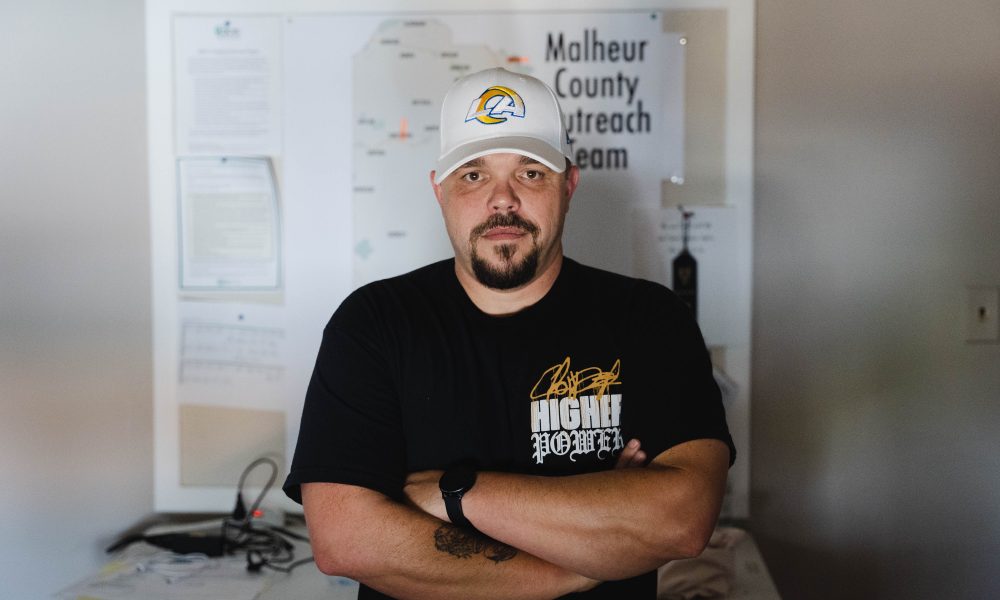About this series: Fentanyl is having a deadly impact on Malheur County, and one not well understood. The Enterprise reporting team of Mac Larsen, Isaac Wasserman and Cynthia Liu spent weeks learning about this threat. In this part, meet some of the people who deal daily with this risk to lives in our community. Share your comments and thoughts with an email to Editor Les Zaitz ([email protected]).
THE COUNSELOR:
Steven Wolf, recovery mentor, Origins Faith Community Substance Abuse Disorders Program
Sometimes, when Steven Wolf arrives for his job as a substance abuse recovery mentor, the client he’s supposed to meet that morning hasn’t arrived for an appointment.
On occasion, Wolf finds out it’s because they died of an overdose. He hears of it via word of mouth from people living on the streets.
Wolf, a certified recovery mentor for Origins Faith Community’s substance abuse disorders program, works with people with addiction through a harm recovery approach. He’s had over 20 clients in the past year and not all make it through recovery.
An increasing number are using fentanyl.
“There’s quite a few more overdoses lately,” said Wolf. “There’s [also] more people using fentanyl than what it was before. It started with prescription pills, then Oxycontin got expensive. Now, you can get a blue [the street name for fentanyl] for $30, and it can keep them high.”
Some use meth cut with fentanyl. Intentional or not, the result is the same: fentanyl, 50 times stronger than heroin, is comparatively cheap and highly addictive. The stimulant nature of meth, paired with fentanyl, a depressant, can also mask the drug’s effects, making it much easier to unintentionally overdose.
If you want that help, don’t be afraid to reach out. We don’t judge, we don’t have judgment – we’ve been there.
– Steven Wolf, certified recovery mentor
“I had a client that passed away, that they weren’t able to save from the overdose,” said Wolf. “I had kind of figured, because he wasn’t reaching out anymore, and I kept reaching out.”
While many of his clients are no longer in touch with their own families, their loss still affects all those around them – including Wolf.
“I can’t let it affect me too much, but it does. I know it’s gonna happen more, especially if we don’t have more people who know how to administer Narcan,” said Wolf, referring to the life-saving antidote.
Wolf himself struggled with addiction for 25 years. Instead of being sent to prison, he was placed in a substance abuse recovery program. He had counselors he’s still in touch with now, and who helped him change his life.
The first step, said Wolf, is always to get people off the street, to get them fed and housed. Having their basic needs met is a big step towards recovery. He also hopes people stay aware of risks and know that they can get help before it’s too late.
“Fentanyl is very dangerous, and it can destroy your lives,” said Wolf. “If you want that help, don’t be afraid to reach out. We don’t judge, we don’t have judgment – we’ve been there. You don’t have to live this way.”
–Cynthia Liu, The Enterprise
RELATED COVERAGE:
PART 1: SNEAKY KILLER: Fentanyl in Malheur County
EXCELLENCE IN JOURNALISM – Available for $7.50 a month. Subscribe to the digital service of the Enterprise and get the very best in local journalism. We report with care, attention to accuracy, and an unwavering devotion to fairness. Get the kind of news you’ve been looking for – day in and day out from the Enterprise.




